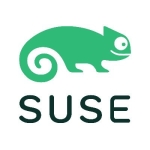What is our primary use case?
My company is based out of Virginia. I do a lot of work with the federal government.
What is most valuable?
I absolutely love how I can go out, get Oracle Linux, develop something with the Identity and Access Management, and be able to deploy, it and test it, and work on it very, very quickly. That's absolutely what I love, how portable it is and how much it relates.
If the enterprise I work for has licenses for Red Hat, I don't have to go get a license from Red Hat to start working on my Oracle product. But, once it's developed in Oracle Linux, I can easily take it, and adapt it, and move it onto Red Hat, and it works seamlessly.
How has it helped my organization?
Benefits: If you start with Oracle Linux, you can adapt to any of the Oracle products a little bit easier than any other OS.
What needs improvement?
The kernel could be expanded, a little bit more maximized to work with Kubernetes and the like. That's probably where they are going to go, a little bit more orchestration, system maintenance management.
The ability to do self-diagnostics. Run one command and it runs top head memory, tell me what's going on. The ability for the OS to regulate itself, to do self-diagnostics, so you could take out the UNIX admins and the UNIX supports. Tell me what's really wrong, right now in the OS, what does it look like right now?
What do I think about the stability of the solution?
Stability, scalability, like I said, it compares directly with Red Hat. In some things, the packages, the ability to reach out to the Oracle yum packages, and do automatic updates, it gives you the ability to scale.
Patching, there's quarterly patches. I actually think they may even do bi-weekly patches now for Oracle Linux.
The scalability, as long as you have someone to manage it, you're good to go and it's right up there in reliability with the Red Hat stuff.
How are customer service and technical support?
I can't tell you any experience about the Oracle Linux. But Oracle Support in general, I have to put in tickets for Identity Management all the time. They usually come back, depending on the severity of the problem, within a reasonable amount of time, and I always get what I need.
Which solution did I use previously and why did I switch?
At an organizational level, I would love to see them going more Oracle Linux, actually adapting that, getting rid of a little bit of the Red Hat, the notion that Red Hat is the best. I want to see Oracle Linux, it's expanding.
I think all the stuff that they are doing with analytics and all this work with the autonomous database, it's only going to get to the point where you're going to have autonomous OS's and Linux is going to be autonomous. Why not move to Oracle Linux now? It'll be easier than to move off in the future.
How was the initial setup?
If you don't know Linux, then go learn some Linux. But relatively, if you want to set up a virtual box, set up the Oracle Linux stuff, it's pretty much drag, drop, click, click, click.
What other advice do I have?
I wish my enterprise would adapt it, so I give it a 10 out of 10 in my book. But I guess we'll have to give it a seven and eight out of 10 from an enterprise level, just because they haven't bought in yet.
If you're going to go into the Oracle industry, learn Oracle Linux, learn the ins and outs, and it'll help you out. Like I said, with the whole cloud infrastructure, the whole cloud architecture, I think Oracle Linux is the way to go.
Disclosure: My company does not have a business relationship with this vendor other than being a customer.
















